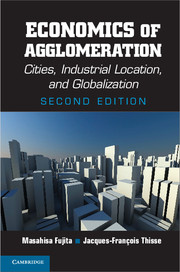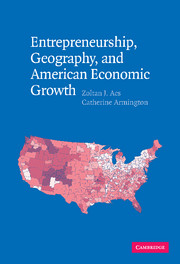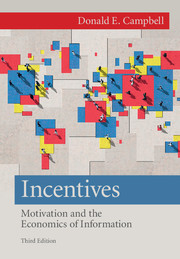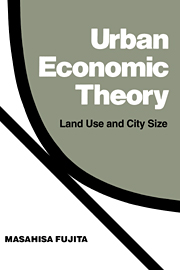Economics of Agglomeration
Cities, Industrial Location, and Globalization
2nd Edition
- Authors:
- Masahisa Fujita, Kyoto University, Japan
- Jacques-François Thisse, Katholieke Universiteit Leuven, Belgium
- Date Published: August 2013
- availability: Available
- format: Paperback
- isbn: 9780521171960
Paperback
Other available formats:
Hardback, eBook
Looking for an inspection copy?
This title is not currently available for inspection. However, if you are interested in the title for your course we can consider offering an inspection copy. To register your interest please contact [email protected] providing details of the course you are teaching.
-
Economic activities are not concentrated on the head of a pin, nor are they spread evenly over a featureless plane. On the contrary, they are distributed very unequally across locations, regions and countries. Even though economic activities are, to some extent, spatially concentrated because of natural features, economic mechanisms that rely on the trade-off between various forms of increasing returns and different types of mobility costs are more fundamental. This book is a study of the economic reasons for the existence of a large variety of agglomerations arising from the global to the local. This second edition combines a comprehensive analysis of the fundamentals of spatial economics and an in-depth discussion of the most recent theoretical developments in new economic geography and urban economics. It aims to highlight several of the major economic trends observed in modern societies. The first edition was the winner of the 2004 William Alonso Memorial Prize for Innovative Work in Regional Science.
Read more- Explores how cities are the engines of modern economic growth
- Examines how high value-added economic activities are concentrated in a few cities and regions
- Argues that distance and location still matter in modern economic life
Reviews & endorsements
'Two of the best regional scientists share with us what they have learned about the economics of agglomeration. This splendid book shows that different strands in the literature rely on the same common principles that define agglomeration economies. The authors show how these common principles can help us to understand the spatial distribution of economic activity. Although the book is mostly about theory, lucid and stylized examples illustrate the theories. Economics of Agglomeration, Second Edition is essential reading for graduate students in regional and urban economics for years to come.' Steven Brakman, University of Groningen
See more reviews'The first edition of Economics of Agglomeration by Masa Fujita and Jacques Thisse was a masterful integration of nearly 200 years of research in regional and urban economics. It educated graduate students and researchers alike for more than a decade. This new and thoroughly revised edition integrates the most recent developments of a booming field while keeping a unified perspective. I have no doubt this new edition will educate anyone interested the field for another ten years or more.' Gilles Duranton, University of Pennsylvania
'The first edition of this book was a gem and the second edition is even more wonderful. Agglomeration plays an important role in the formation of urban areas, industrial structures, regional and international trade, and more. Fujita and Thisse masterfully review these issues with rare analytical clarity and insightful commentary. This is a highly recommended book.' Elhanan Helpman, Harvard University
'Fujita and Thisse provide an exhaustive and rigorous account of what microeconomic theory has to say about the basic economic forces that give rise to cities. This new edition, substantially updated and with an increased emphasis on issues in the intersection of spatial economics and international trade, will be the standard reference in the field for years to come.' Robert Helsley, University of British Columbia
Customer reviews
Not yet reviewed
Be the first to review
Review was not posted due to profanity
×Product details
- Edition: 2nd Edition
- Date Published: August 2013
- format: Paperback
- isbn: 9780521171960
- length: 544 pages
- dimensions: 229 x 152 x 28 mm
- weight: 0.72kg
- contains: 42 b/w illus.
- availability: Available
Table of Contents
1. Agglomeration and economic theory
Part I. Fundamentals of Spatial Economics:
2. The breakdown of the price system in a spatial economy
3. The von Thünen model and land rent formation
4. Increasing returns vs. transportation costs: the fundamental trade-off of spatial economics
5. Cities and the public sector
Part II. The Structure of Metropolitan Areas:
6. The spatial structure of cities under communication externalities
7. The formation of urban centers under imperfect competition
Part III. Factor Mobility and Industrial Location:
8. Industrial agglomeration under monopolistic competition
9. Market size and industrial clusters
Part IV. Urban Systems, Regional Growth, and the Multinationalization of Firms:
10. Back to von Thünen: the formation of cities in a spatial economy
11. Globalization, growth, and the geography of the supply chain.
Sorry, this resource is locked
Please register or sign in to request access. If you are having problems accessing these resources please email [email protected]
Register Sign in» Proceed
You are now leaving the Cambridge University Press website. Your eBook purchase and download will be completed by our partner www.ebooks.com. Please see the permission section of the www.ebooks.com catalogue page for details of the print & copy limits on our eBooks.
Continue ×Are you sure you want to delete your account?
This cannot be undone.
Thank you for your feedback which will help us improve our service.
If you requested a response, we will make sure to get back to you shortly.
×





